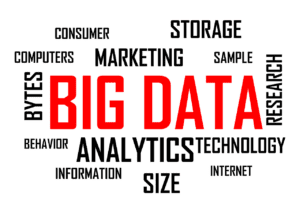One of the latest buzzwords in the tech world is the Metaverse, a concept slowly transforming how we perceive and interact with virtual reality. In this article, we will explore the concept of the Metaverse, its potential, and the future of virtual reality as we know it.
1. Introduction
Virtual reality has been around for decades, but the concept of the Metaverse is relatively new. The Metaverse is a term coined by writer Neal Stephenson in his 1992 novel “Snow Crash.” The term refers to a collective virtual shared space not limited by physical boundaries. It is a world where people can interact with each other in real-time, participate in activities, and experience things that would be impossible in the real world. The Metaverse is not a singular entity but a network of interconnected virtual spaces that people can access and explore.
2. Understanding the Metaverse
The Metaverse is a world of endless possibilities where users can experience an immersive virtual environment. It is not just a platform for gaming but a world where people can interact with each other, participate in social events, and even attend classes. The Metaverse combines virtual reality, augmented reality, and other immersive technologies, making it a truly immersive experience.
The Metaverse differs from the internet, where users are limited to two-dimensional screens and interactions. The Metaverse is a three-dimensional space where users can interact with each other in real-time as if they were in the same room. The Metaverse is not just limited to one platform but a network of interconnected platforms, allowing users to move from one platform to another seamlessly.
3. The Potential of the Metaverse
The potential of the Metaverse is enormous. It can potentially transform how we work, play, and interact with each other. It is a world where people can experience things that would be impossible in the real world. For example, people can attend concerts and events from the comfort of their own homes, eliminating the need for physical travel. The Metaverse can also be used for education, where people can attend classes and interact with other students in a virtual environment.
The potential of the Metaverse is not limited to entertainment and education. It has the potential to transform the way we do business. In the Metaverse, businesses can create virtual storefronts and interact with customers in a more immersive and engaging way. The Metaverse can also be used for remote work, where people can collaborate and work on projects in a virtual environment.
4. The Future of Virtual Reality
The Metaverse is the future of virtual reality. As technology continues to advance, the possibilities of the Metaverse are endless. The future of virtual reality is not limited to entertainment but has the potential to transform the way we live our lives. The Metaverse could be used for medical purposes, where doctors can treat patients in a virtual environment. It could also be used for virtual travel, where people can explore new places without leaving their homes. The future of virtual reality is limited only by our imagination and the technology we have available.
5. Implications for Business
The Metaverse has significant implications for business. Companies that can adapt and embrace the Metaverse will have a significant advantage over their competitors. Businesses operating in the Metaverse can interact with customers more engaging and immersively, creating a more loyal customer base. Companies can also use the Metaverse for marketing, creating virtual events and experiences to attract new customers.
The Metaverse also has implications for e-commerce. In the Metaverse, companies can create virtual storefronts where customers can browse and purchase products. The Metaverse can create a more engaging and immersive shopping experience, increasing the likelihood of a purchase. The Metaverse can also be used for supply chain management, where companies can track their products in real time, reducing costs and improving efficiency.
6. The Ethics of Metaverse
The Metaverse raises several ethical concerns. One of the main concerns is the potential for addiction. The Metaverse is a world of endless possibilities, and some people may find it difficult to differentiate between the virtual and real worlds. Another concern is the potential for identity theft and fraud. In the Metaverse, users create virtual avatars that represent them, and these avatars can be used to perpetrate fraud.
There are also concerns about privacy in the Metaverse. In the Metaverse, users may reveal personal information about themselves, which could be used for nefarious purposes. The Metaverse also raises concerns about surveillance, as users may be monitored without their knowledge or consent.
7. The Challenges Ahead
The Metaverse is still in its early stages, and several challenges must be addressed before becoming a mainstream technology. One of the main challenges is the need for a seamless user experience. In the Metaverse, users must be able to move from one platform to another seamlessly, without any interruptions.
Another challenge is the need for interoperability. The Metaverse is not a singular entity but a network of interconnected platforms. For the Metaverse to be successful, these platforms must be able to communicate with each other seamlessly.
8. Security and Privacy Concerns
Security and privacy are significant concerns in the Metaverse. In the Metaverse, users may reveal personal information about themselves, which could be used for nefarious purposes. There is also the potential for identity theft and fraud, as users create virtual avatars representing them.
The Metaverse must have robust security measures in place to address these concerns. Users must be able to control the information they reveal about themselves and have the ability to opt out of data collection. Companies operating in the Metaverse must also have strict security protocols to protect their users’ information.
9. The Role of Artificial Intelligence
Artificial intelligence (AI) will play a significant role in developing the Metaverse. AI can be used to create more realistic and engaging virtual environments, and it can also be used to monitor user behavior and provide personalized experiences. AI can also be used for chatbots and virtual assistants to assist users in the Metaverse.
10. The Role of Blockchain Technology
Blockchain technology can also play a significant role in the Metaverse. Blockchain can create secure and decentralized virtual economies where users can buy, sell, and trade virtual goods. Blockchain can also be used for digital identity, where users can control their personal information and identity in the Metaverse.
11. Advancements in Hardware
Advancements in hardware will also play a significant role in developing the Metaverse. As technology advances, hardware will become more affordable and accessible, making the Metaverse more accessible to a broader audience. Advancements in virtual reality headsets, haptic feedback devices, and other hardware will enhance the immersive experience of the Metaverse, making it more lifelike and realistic.
12. Conclusion
The Metaverse is the future of virtual reality, and it has the potential to revolutionize the way we interact with technology and with each other. It is a world of endless possibilities, limited only by our imagination and available technology. The Metaverse has significant business, e-commerce, and supply chain management implications. However, it raises several ethical concerns like addiction, privacy, and security.
As the Metaverse continues evolving, we must address these concerns and ensure the technology is used responsibly and ethically. The development of the Metaverse will require collaboration between developers, businesses, and policymakers to create a safe and secure user environment.
FAQs
- What is the Metaverse? The Metaverse is a collective virtual shared space created by combining physical and virtual reality. Users can interact with a computer-generated environment and other users more immersive and engagingly.
- How is the Metaverse different from virtual reality? Virtual reality is a computer-generated simulation of a real or imaginary environment. At the same time, the Metaverse is a collective virtual shared space where users can interact with a computer-generated environment and other users.
- How will the Metaverse impact business? The Metaverse has significant implications for business. Companies that can adapt and embrace the Metaverse will have a significant advantage over their competitors. Businesses operating in the Metaverse can interact with customers more engaging and immersively, creating a more loyal customer base.
- What are the ethical concerns surrounding the Metaverse? The Metaverse raises several ethical concerns like addiction, privacy, and security. In the Metaverse, users may reveal personal information about themselves, which could be used for nefarious purposes. There is also the potential for identity theft and fraud, as users create virtual avatars representing them.
- What is the role of AI and blockchain in developing the Metaverse? Artificial intelligence (AI) and blockchain technology can play a significant role in developing the Metaverse. AI can be used to create more realistic and engaging virtual environments, and it can also be used to monitor user behavior and provide personalized experiences. Blockchain can be used to create secure and decentralized virtual economies where users can buy, sell, and trade virtual goods, as well as for digital identity.





